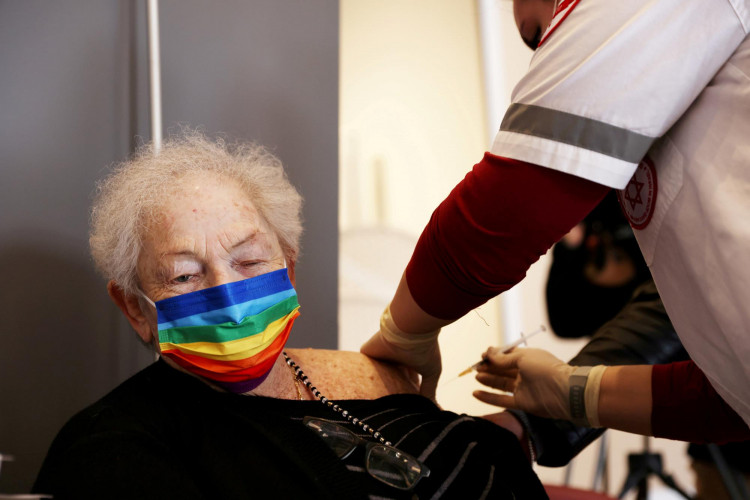Israel said it will ship thousands of extra COVID-19 vaccines to foreign allies reigniting a dispute about the country's obligation to people living in the West Bank and Gaza.
The decision by Israeli Prime Minister Benjamin Netanyahu to share coronavirus vaccines with his diplomatic partners comes at a time when the Jewish state has been criticized for not giving considerable quantities to those living in the West Bank and Gaza.
Netanyahu has also been accused by a political opponent of acting alone and wasting taxpayers' money.
Israel has been importing Pfizer and Moderna's vaccines and has given at least one Pfizer dose to nearly half of its 9 million people.
The recipients included those living in Jewish settlements in the occupied Palestinian territories, in one of the fastest vaccination campaigns in the world.
On Wednesday, the governments of Honduras and the Czech Republic confirmed that Israel had pledged to give them 5,000 each of the vaccine doses produced by Moderna.
The donations are the latest example of how COVID-19 vaccines have emerged as a form of diplomatic currency, in which nations with plenty of supply of vaccines seek to reward or influence those that have little or no access to them.
But the donations have annoyed those in the West Bank and Gaza who accuse Israel of favoring its allies rather than those living under its control in the occupied territories.
Israel aims to have virtually all of its adults fully immunized by the end of March this year. "Our supply is beyond what is needed by the people of Israel," Netanyahu said in remarks quoted by The Associated Press. "We have more than enough to help where we can. It is mostly symbolic," he said.
Israel has given the Palestinian Authority 2,000 vaccine doses and pledged to give 3,000 more. While Israel has suggested that more may come, it has yet to formalize any details.






